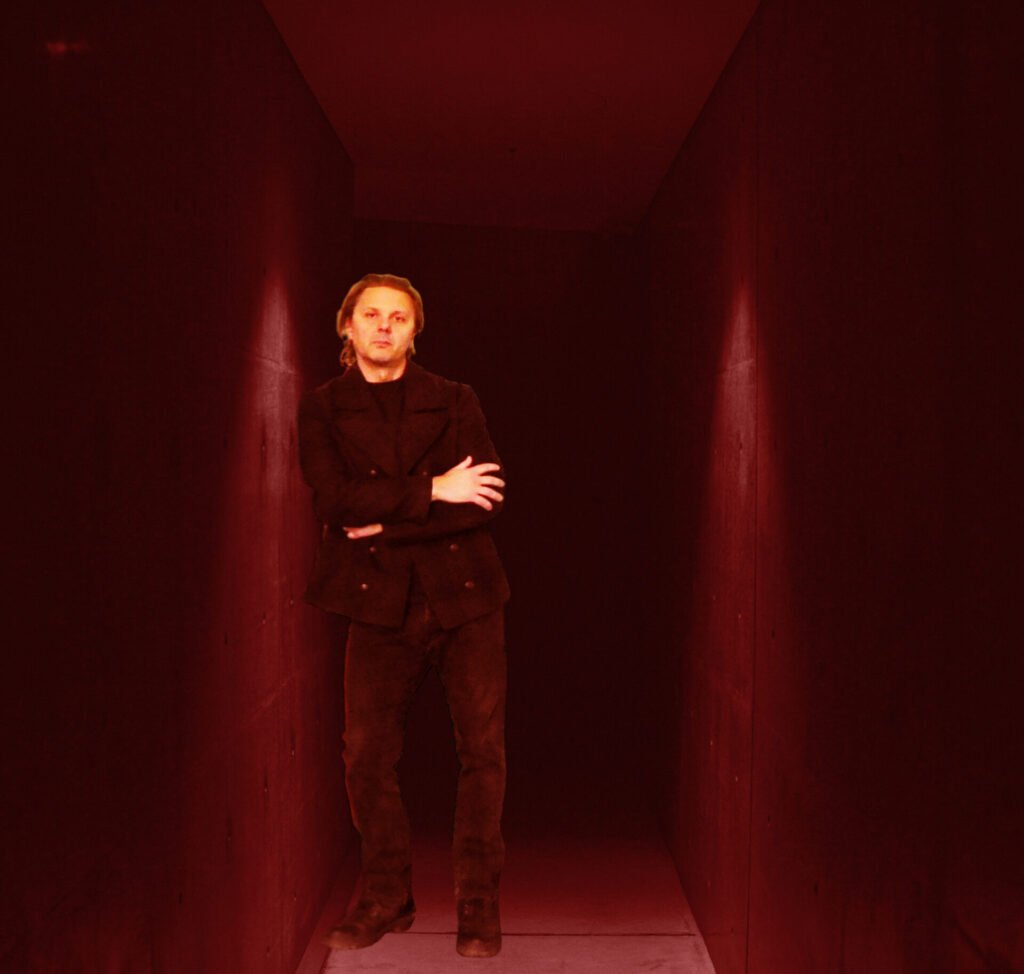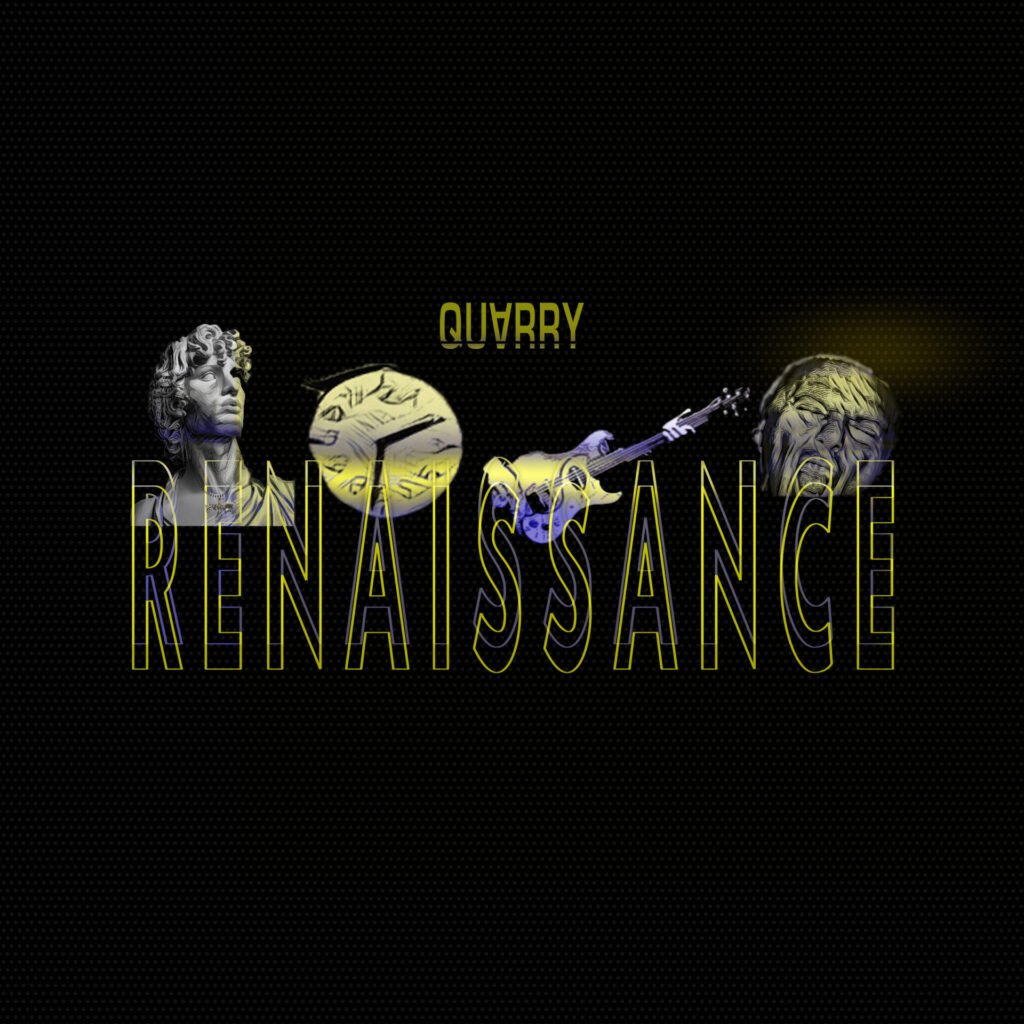Vittorio Tolomeo, better known by his stage name Quarry, is a London-based indie pop rock singer-songwriter. Speaking both Italian and English, he is an industrious music enthusiast who has performed both solo and in bands throughout Europe. Check out the exclusive interview below:

1. Can you tell us a bit about where you come from and how it all got started?
QUARRY: I am an Italian born-British adopted musician. I started playing drums and guitar and joined a couple bands in Italy. After that I began singing the songs I was writing and became what is known as a frontman. Then, I lived between Milan and London, and I’ve played around Europe both solo and with some bands. The band Prizeday was the most significant; we released an album, toured Europe, opened for Arthur Brown, and played at The Great Escape Festival.
2. Who were your first and strongest musical influences and why the name ‘QUARRY?
QUARRY: I see influences as a kind of soul link between artists from various historical periods. Despite having quite distinct musical styles and methods, these musicians are connected in some way. I wish to filter my fascination with the past through my own impulses, my own motivations to avoid becoming a boring clone of someone else. Artists such as Patti Smith, Sly and The Family Stone, Velvet Underground, Beatles, Bob Dylan, Joy Division, David Bowie, Temptations, and The Clash, to mention a few, are constantly on my life’s soundtrack for various reasons. The name Quarry came when I started the band Prizeday few years ago. Throughout the recording sessions, I was listening to Morissey’s album “You Are The Quarry”. My bandmates nicknamed me Quarryman or Quarrymad. Finally, I went with Quarry!
3. What do you feel are the key elements in your music that should resonate with listeners, and how would you personally describe your sound?
QUARRY: Probably the balance between spontaneity in songwriting, which I strive to maintain as much as possible throughout recording, and the cinematic landscape that I try to depict. I think of my music as “sound in motion. Steady but tense, dazzling but dark. Suddenly changing course, with everyday noise in the background.
4. For most artists, originality is first preceded by a phase of learning and, often, emulating others. What was this like for you? How would you describe your own development as an artist and music maker, and the transition towards your own style, which is known as POP?
QUARRY: As with any new musician who starts playing, I tried to learn to play by playing and singing along to my favourite records. I remember learning to play basic guitar chords by listening to Lou Reed’s “Walk On The Wild Side” over and over. But I’ve never been very good at playing other people’s songs so it seemed natural for me start writing my own. I’ve always been fascinated by the spark of creativity, as well as the entire songwriting process. If you have something to say and can create a sonic and lyrical world around it, that’s magical. It’s fantastic whenever it happens.

5. With social media having a heavy impact on our lives and the music business in general, how do you handle criticism, haters, and/or naysayers in general? Is it something you pay attention to, or simply ignore?
QUARRY: Almost everyone wants to be noticed in the magical mirrorball that is social media. The sad thing is that the majority of social media users wants to live other people’s lives. They must publish comments on whatever topic and trash everyone they dislike or who they admire while also envious of. They are also incredibly confident and believe they are skilled in any subject. Science, art, philosophy… It’s simple to deal with constructive criticism and interact, but most of the time it is just people venting their rage. So, who cares? The algorithms are already raping our souls. I will not let any hater violate mine.
6. What’s your view on the role and function of music as political, cultural, spiritual, and/or social vehicles – and do you try and affront any of these themes in your work, or are you purely interested in music as an expression of technical artistry, personal narrative, and entertainment?
QUARRY:
I’ve always thought music to be the best form of art for communicating about so many various elements of life. We can’t “see” music the way we can watch a movie, but some music may be truly “seen” because it transports you to places you feel you can see or touch. Unfortunately, music nowadays does not hold the same significance as it did in the 60s, 70s, and 80s. And the term “entertainment” is misinterpreted as a mound of rubbish that algorithms or huge networks aim to feed the public. Music may be both entertaining and a spiritual tool for political, cultural, and social issues, and still be considered entertainment. Think of Sly and The Family Stone in the 60s and 70s in the United States. The music was funky, trippy, and danceable, yet the band welcomed its members’ “diversity” and wanted to protest against prejudice of all kinds. Writing music has always been a way for me to deal with what’s going on inside or around me, whether it’s a personal frustration or denying any form of violence or war, but all of this must be incorporated into a form of art that, at the end of the day, is entertainment in the best sense of the word, as it was in those fantastic years for whatever form of art, the 60s, 70s, and 80s.
7. Creative work in a studio or home environment, or interaction with a live audience? Which of these two options excites you most, and why?
QUARRY: They are magical in their own unique ways. It’s a different type of thrill. It is priceless to create and shape something that did not exist only a few hours before. On the other hand, when the gig is going well and you look at the eyes of the audience, touch them, hear their voices, sense their joy, and your adrenaline is pounding, that’s priceless too.
8. Could you describe your creative processes? How do usually start, and go about shaping ideas into a completed song? Do you usually start with a tune, a beat, or a narrative in your head? And do you collaborate with others in this process?
QUARRY: Well, first of all, I keep everything mic’d up all the time in my tiny studio. When I have an idea, I jump around the instruments. It’s great to be able to record them immediately quickly. I try to make the most of the initial recordings. You’ll never know. Writing and recording are two things I do at the same time. I usually try to capture every sonic and lyrical idea as accurately as I can. In fact, many of the original takes recorded during the pre-production stage make it into the final mix. When I feel the music is taking shape, I work with others on it. I’ve always been a “boy in a band” and still am when I play live with a band. Being a solo artist has given me more freedom, but I always like to collaborate with other people.
9. Do you feel that your music is giving you back just as much fulfillment as the amount of work you are putting into it or are you expecting something more, or different in the future?
QUARRY: In terms of personal gratification as an artist who has embarked on various musical journeys and has always sought to explore new pathways, I would absolutely say yes! In terms of seeing happy faces during live performances and people shaking hands or hugging me after gigs to express how much they enjoyed the music, I’d say absolutely yes! In terms of listeners and critics who expressed genuine excitement for what I do, I’d say absolutely yeah! In terms of reaching a large audience and making a consistent income from all of the activities associated with being a musician, I would definitely answer no! But, as we all know, music is just like any other product in terms of marketing. It’s difficult to generate a genuine buzz if you’re not guided through the process. Particularly these days, when anyone considers making a record just because he has some plugins on his laptop and believes that placing songs on Spotify and spending a large sum of money to advertise the music on Facebook or Instagram will get you renown. It doesn’t work that way. Musicians should spend more time writing and playing music than they do on social media.
10. Do you think is it important for fans of your music to understand the real story and message driving each of your songs, or do you think everyone should be free to interpret your songs in their own personal way?
QUARRY: Everyone is allowed to interpret any song by any artist. When writing a song, I believe that the songwriter usually has a clear idea of where he wants to go with it and is aware of the song’s major theme, but he misses something and that something can be found by the listeners, throughout their interpretation of the song.
KEEP IN TOUCH:
FACEBOOK | INSTAGRAM | TWITTER | SPOTIFY | WEBSITE | YOUTUBE

